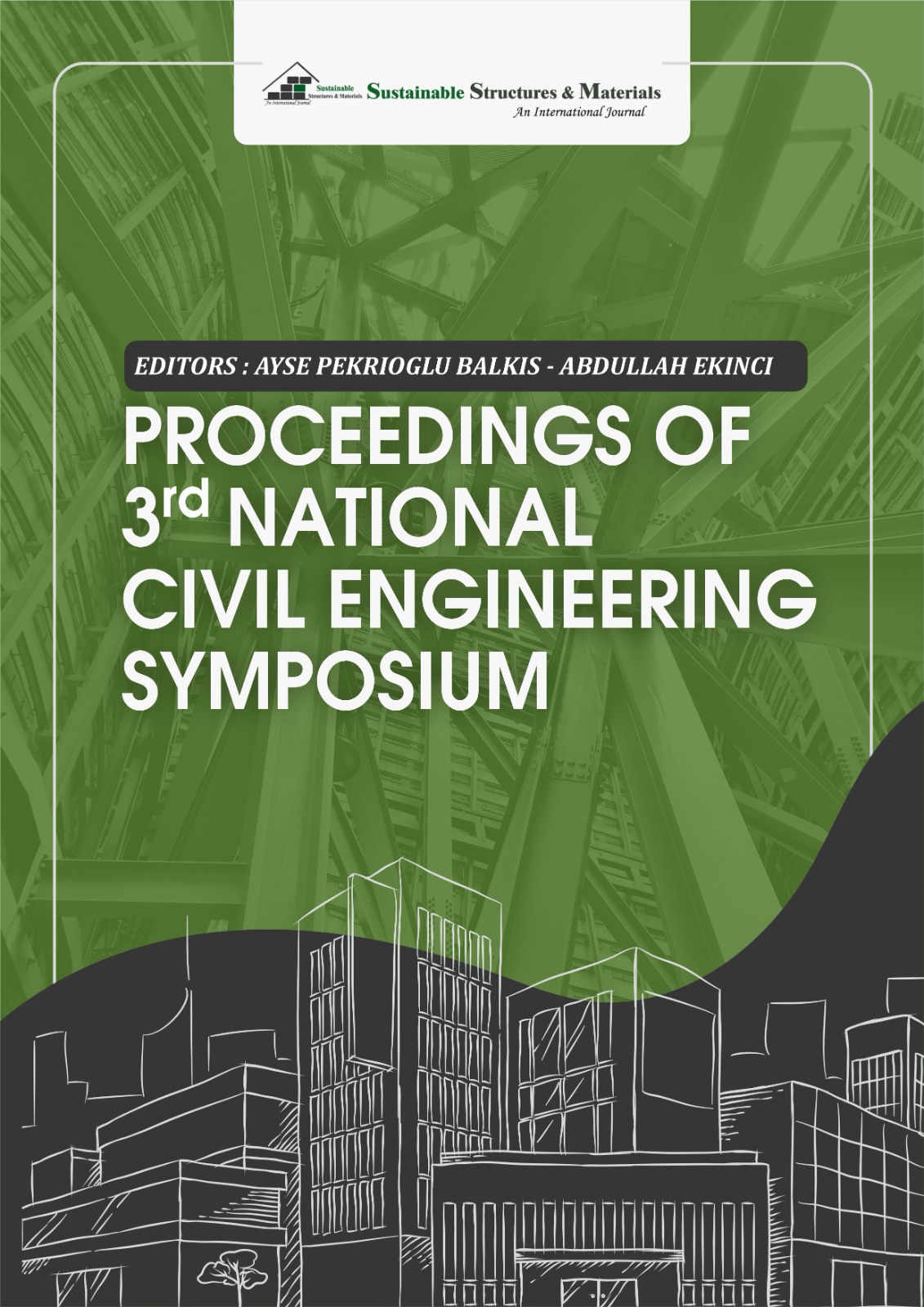National Civil Engineering Symposium (NCE-2024)
Keywords:
Civil Engineering, Sustainable Construction, Transportation Systems, Structural Innovation, Geotechnical EngineeringAbstract
The National Civil Engineering Symposium (NCE 2024), held in Kyrenia, North Cyprus, has once again brought together a diverse and vibrant community of civil engineering professionals, researchers, and academics. This biennial event continues to serve as a critical forum for the exchange of ideas, dissemination of research findings, and the fostering of collaboration across the many sub-disciplines of civil engineering. The proceedings presented in this volume represent the collective effort of hundreds of contributors who are actively shaping the future of the built environment.
Civil engineering, as a discipline, stands at a pivotal intersection of technological advancement and societal need. In a time marked by the escalating effects of climate change, rapid urbanization, and the urgent demand for sustainable development, civil engineers are increasingly called upon to rethink conventional paradigms and adopt more adaptive, innovative, and resilient solutions. The research contributions in this volume reflect this transformation, offering both depth and breadth across traditional and emerging areas of civil engineering.
The contents of this proceedings volume are organized to reflect the comprehensive nature of the symposium. Contributions span across structural engineering, geotechnical engineering, construction materials, hydraulics and water resources engineering, traffic and transportation engineering, and construction management. In addition, a growing number of papers address interdisciplinary themes such as smart infrastructure systems, digital twins, disaster resilience, and sustainability in design and construction practices.
Many of the studies presented here highlight innovative approaches to long-standing challenges—such as seismic retrofitting of aging infrastructure, the reuse of industrial by-products in concrete production, or optimization of transportation systems through data-driven methods. Others explore frontier areas, such as machine learning applications in structural health monitoring, climate-adaptive urban drainage systems, or the role of life-cycle assessment in infrastructure investment decisions. This blend of traditional engineering principles and forward-looking research reflects the evolving responsibilities and expanding toolbox of the modern civil engineer.
Of particular note is the high level of engagement by early-career researchers and graduate students, whose energy and creativity are evident throughout the contributions. Their presence, alongside the work of seasoned academics and industry experts, creates a rich and multigenerational dialogue that is essential for progress in any engineering field.
This volume also underscores the increasing importance of multidisciplinary collaboration. Several papers result from partnerships between academia, industry, and public agencies, and demonstrate how real-world impact can be amplified through cooperative efforts. Equally, many submissions reflect a conscious awareness of engineering’s broader responsibilities—toward environmental stewardship, public safety, and social equity.
The editorial team is grateful to all authors who submitted their work, to the reviewers for their invaluable input, and to the organizing committee for curating a technically rigorous and thematically diverse symposium program. We believe this compilation of research represents not only the state of the art in civil engineering today, but also offers a glimpse into the profession’s future—a future that is more integrative, responsive, and committed to building a more resilient and sustainable world.
We invite readers to explore the contributions within these pages with curiosity and critical thought. May the work presented here inspire further inquiry, cross-disciplinary dialogue, and meaningful innovation in both academic and practical realms of civil engineering.



1.gif)
